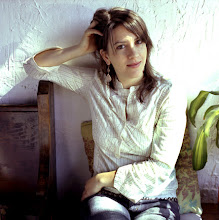The folks at Sustainable Table asked me a couple of questions for their Platter Chatter blog. Here are my answers. More can be found on their blog.
What’s your definition of local?
I like non-rigid definitions of local. For me, local is the spirit of the food, more than an exact number of feet from my kitchen to the field where the food was grown. With that said, I try to support the farmers in what sociologist Jack Kloppenburg calls my local food shed. I shop at farmers markets when I can and look for tri-state food in the supermarket.
The real spirit of “local” doesn’t mean just measuring your food miles, especially for those items that my community can’t grow locally. For instance, my morning cup of coffee may not be “local,” but when I buy fair-trade certified coffee I know that my food dollar supported communities and didn’t just line the pockets of a CEO.
What’s your definition of sustainable?
I used to have a chip on my shoulder about the word “sustainable.” Most people on this planet don’t want to sustain where they are. They’re struggling; they want change, not the status quo. But I’ve come to see that the term sustainable can be aspirational, too. It doesn’t mean resigning ourselves to what is; it means working toward a vision of a world in which the values of fairness, community, and environmental stewardship are all respected. In this way, I think of sustainability as a process not a place. It’s not easy to achieve, but is a powerful goal to reach toward.
Sustainability takes on special meaning in an era of global warming. Sustainability is no longer optional; the fate of our planet depends on it. And food will play a huge role in either helping us move toward sustainability and lower greenhouse gas emissions, or by making our crisis worse. [You can learn more about the connection between our food system and climate change at this special primer page I’ve created with Sustainable Table.]
When you think of local, sustainable, and community, how would you rank the three (from most important to least) and why?
I often hear a version of this question, when I’m speaking to audiences and they ask: “Okay, so which is it: should we choose organic or local?”
In an ideal word, we wouldn’t have to make this choice. In an ideal world, our elected officials wouldn’t sanction the use on our nation’s farmland of man-made chemicals that are known endocrine disrupters, neurotoxins, or carcinogens.
But, well, we don’t live in an ideal world.
Given that reality, when posed with the hypothetical local-vs-organic head-to-head, I encourage people to choose local food from family farms. Those farms may not be organic now, but they may soon transition, particularly with customer support and encouragement.
But I can guarantee you that if those farms disappear–as many thousands do every year–we’ll lose that farmland forever, and never have a chance to have local or organic food at all.
What’s one thing people can do to be more local and sustainable?
There is so much we can do, I hate to boil it down to one thing, so I’ll cheat and give you two ideas: one that’s really specific and one that’s big picture!
First, if you don’t already, go to your local farmers market or become a member of a community support agriculture farm. (This site has lots of resources to make these choices). This is one of your best ways to connect with farm-fresh food and get to know the people behind your local food system.
The second suggestion is much more vague and really quite simple: Follow your passion. There is so much work that needs to be done on the path toward sustainability. Whether it’s starting community gardens, working with schools to bring in healthy foods, fighting for farmer-friendly policy, educating yourself about genetically modified foods, learning about the connections between the food system and climate change, or simply cooking more, whatever specific act you choose to do, you will be aligning yourself with the millions across the globe walking on the path of sustainability.